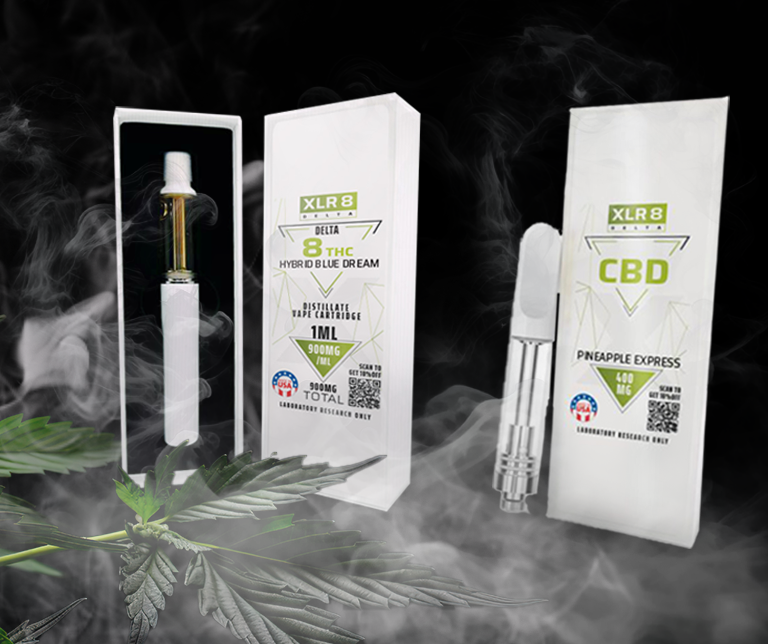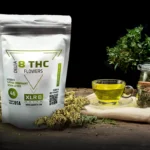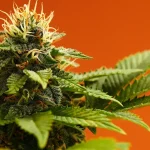As the cannabis industry seems to grow, not only in the United States, but also worldwide, more people are becoming aware of it, and consumers are showing increasing interest in the health benefits of any products made from cannabis. Consumers are also interested in learning more about the many categories of cannabis-derived goods that are available on the market.
But there is a lot of misinformation out there regarding cannabis. Even the most informed cannabis users might not be aware of the distinctions between well-known strains like CBD and THC, let alone newly available cannabinoids.
What are the Main Differences Between Delta 8 and CBD?
Many people recognise marijuana but are unsure as to what exactly Delta 8 THC is. Delta 8 THC is a well-known cannabinoid that only occurs in small concentrations and is present in a very specific strain of marijuana. Potential consumers must be informed of the differences and similarities between the various cannabinoids as more goods derived from cannabis become accessible. This article compares CBD with Delta 8 to show the similarities and differences.
What Exactly is CBD (Cannabidiol)?
Cannabis sativa, also known as hemp or cannabis, contains a substance known as cannabidiol, or CBD. Tetrahydrocannabinol, or THC, the psychoactive ingredient in marijuana that results in a “high,” is absent from cannabidiol. The most popular form of CBD is oil, although it can also be found as an extraction, a vapor-liquid, and an oil-based tablet.
Due to the popularity, there are numerous CBD products online, including in the form of gummies, drinks, and beauty products, to name a few. Before purchasing any cannabidiol product, it is advised to research state laws pertaining to CBD legality.
What Exactly is Delta 8 THC?
How does Delta 8 THC work? Cannabis plants contain Delta 8 THC, a compound that causes hallucinations or has psychoactive properties. Usually, when people mention THC, they’re referring to this substance. Although delta 8 THC and delta 9 THC share a chemical structure, delta 8 THC is weaker due to a tiny difference in its molecular structure.
What Part of the Hemp Plant is CBD Derived From?
The leaves and buds of the cannabis sativa plant are used to make cannabidiol oil that is obtained from hemp. The roots or seeds of the plant do not contain any cannabidiol, only the aerial parts of the plant do. The stems, flowers, and leaves of the hemp plant that are above the soil line are considered to be aerial parts of the plant.
What Part of the Hemp Plant is Delta 8 Derived From?
They begin with fractionally distilling the hemp flower after it has been partially processed. Thin film distillation is a technique that makes use of temperature and pressure variations to isolate Delta 8 THC. This process generates Delta 8 distillate, which typically has a Delta 8 content of more than 80%.
Since the hemp plant has little Delta 8, however, it is typically produced synthetically by converting cannabidiol or Delta 9 THC to Delta 8 THC.
What is Some of the Research Surrounding CBD?
There is a wealth of scientific evidence supporting the use of cannabidiol as a therapeutic and medicinal cannabinoid. Even though some people may still be dubious about these claims, hundreds or even thousands of studies have shown how effective it is at reducing symptoms.
CBD for Anxiety and PTSD
Several research studies have examined the efficacy of CBD as a PTSD and anxiety treatment utilising various cannabidiol formulations. Studies have used cannabidiol in both topical forms, such as oils, and edible forms, such as gummies. The following details were discovered by researchers examining the various CBD forms:
In a 2019 investigation, PTSD sufferers who combined CBD capsules with conventional counselling experienced a decrease in their symptoms.
A study from 2016 found a child with PTSD was successfully treated for anxiety and sleep issues using CBD oil administered to the skin.
According to one 2018 review, tetrahydrocannabinol (THC) and cannabidiol may also work together to treat the symptoms of PTSD.
Interestingly, due to its inhibiting effects, cannabidiol oil may help those who use heroin manage cravings and anxiety. Men and women who used CBD oil reportedly experienced reduced cravings when they abstained from drugs, according to various studies. The results are significant because they suggest that CBD oil might be a helpful aid for those seeking addiction therapy.
CBD for Pain Relief
Additional human research are required to support claims that CBD reduces pain. According to an animal study published in the European Journal of Pain, using cannabidiol topically may help reduce arthritis-related pain and inflammation. The difficult-to-treat inflammatory and neuropathic pain may be inhibited by CBD, according to additional studies.
What is Some of the Research Surrounding Delta 8?
Delta 8 THC may be an effective analgesic due to its propensity to bind to CB1 cannabinoid receptors throughout your body, including those in your brain and neurological system. This could explain why Delta 8 THC has a lower potential for abuse than Delta 9, which has a little to no binding affinity for CB2 receptors.
By keeping you calm and reducing muscular spasms or nerve dysfunction in your body, delta 8 may help you manage chronic pain. Your digestive system may be impacted by the effects of delta 8 THC, which may cause you to feel nauseous, bloated, or lose your appetite.
It is important to note that Delta 8 THC is regarded as innocuous because it has no impact on your immune system, thus at low doses, you won’t experience the cravings, parched mouth, or bloodshot eyes.
CBD vs Delta 8 Gummies
While Delta 8 gummies do have intoxicating effects, CBD gummies do not. Because cannabidiol attaches to the CB1 receptors in a non-psychoactive way, it has no psychoactive effects. As previously mentioned, CBD can decrease Delta 8 THC’s pleasurable effects. The interaction between Delta 8 and both receptors is strong. Therefore, while cannabidiol won’t provide a psychoactive high, Delta 8 will. Effects of CBD are relatively minimal with almost no adverse events.
Are these products legal?
It is legal to buy both CBD gummies and Delta 8 gummies, and you can do so for the vast majority of hemp derived cannabidiol products and brands online. The 2018 Farm Bill made it lawful for all CBD products derived from hemp to be purchased in the United States if they have a THC content of 0.3 percent or less.
How similar is Delta 8 THC to Delta 9 THC?
Delta 8 THC and Delta 9 THC have similar but not identical chemical structures. Delta 8 THC may have less impact than Delta 9 THC due to its differing structural makeup. To completely understand the effects of Delta 8, more investigation is necessary.
Conclusion
Unlike THC, CBD has little to no psychoactive effects. This is due to both affecting different receptors in the brain. Unlike cannabidiol, THC has psychoactive effects and will get you high.
- By Plain Jane




